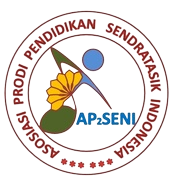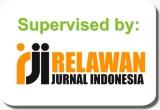KESENIAN SIKAMBANG: PRESPEKTIF MULTIKULTURAL SEBAGAI IDENTITAS BUDAYA PESISIR SIBOLGA
Abstract
This research explains about the Sikambang arts in Sibolga coastal area, and aims to recognize the multicultural aspect that is implemented as cultural identity of Sibolga coastal society.
To support the research analysis, the writer mainly uses the theory of Salad Bolw. Specifically, she (the writer) applies Acculturation Theory and Adaptation as supporting theory, and also Dusek’s theory of Identity.
The obtaining-data process of this research was conducted from July until the end of August 2014. Its samples include some cultural figures and artists who have deep comprehension on Sikambang arts in Sibolga coastal. The research data was collected through field-work method which consists of several aspects: observation, interview, library research, and documentation. Subsequently, she analyses it by using a descriptive qualitative method.
The result of this research is, Sibolga coastal society is heterogeneous that consists of various tribes such as Minangkabau and Malay. The multicultural process is manifested from trading activities that in a long-term make an impact to cultural acculturation, like the wedding processions which performing Sikambang arts by every Muslim ethnic in Sibolga coastal. Sikambang arts acculturation can also be seen in Randai dance, originating from Minangkabau. Another example is Kapri dance, originating from Melayu. Those dances reflect the sense of respect and sense of belonging, as well as becoming cultural identity of Sibolga coastal society.
Keyword: Artistry of Sikambang, Multikultural, Identity
Full Text:
PDFDOI: https://doi.org/10.24114/senitari.v2i2.1442
Article Metrics
Abstract view : 639 timesPDF - 2329 times
Refbacks
- There are currently no refbacks.
Copyright (c) 2014 RUWAIDA RUWA IDA

This work is licensed under a Creative Commons Attribution-ShareAlike 4.0 International License.

This work is licensed under a Creative Commons Attribution-ShareAlike 4.0 International License.








